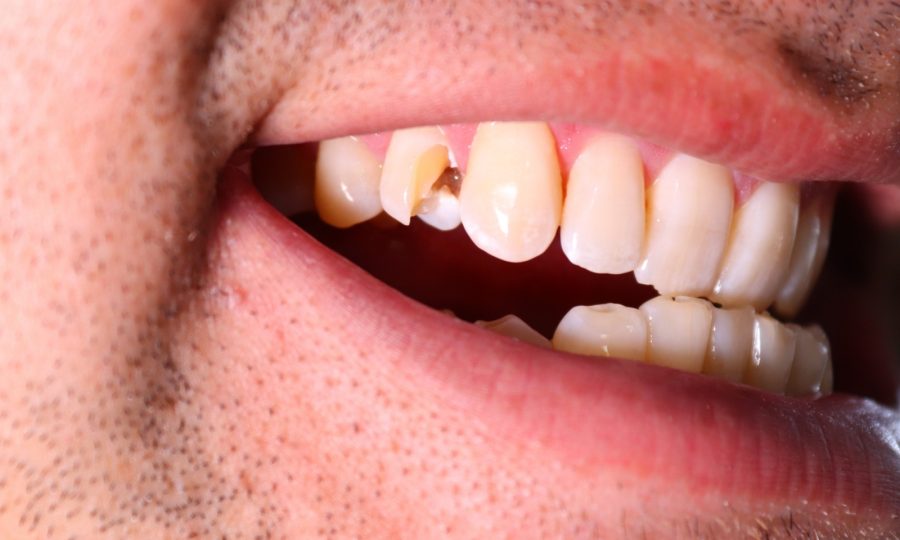How Do I Fix a Chipped Tooth?
If you’ve recently chipped a tooth, there’s no need to worry—it’s a common dental issue that can be easily fixed. However, having a chipped tooth not only affects your appearance but can also cause discomfort and sensitivity, making it important to seek treatment as soon as possible. There are several effective ways to fix a chipped tooth, and the best option often depends on the severity of the chip and your personal preferences.
For minor chips, dental bonding is a popular choice. If the chip is more significant or affects the tooth’s structure, a crown may be recommended. For those looking for a more aesthetic solution, veneers can be an excellent option, as they are thin shells of porcelain or composite resin that are bonded to the front of the tooth, allowing for a natural look.
It’s important to discuss these options with your dentist to determine the most suitable treatment for your specific situation.
Dental Bonding
Dental bonding is a quick and painless procedure that involves applying a tooth-coloured resin to the chipped area of the tooth. The resin is shaped and moulded to match the natural contours of your teeth, then hardened with a special light. This not only repairs the chip but also strengthens the damaged tooth. Bonding can typically be completed in 1 visit, making it a convenient option for those with minor chips.
Is Dental Bonding Right for Me?
While dental bonding is an effective solution for many people, it may not be suitable for all cases. It’s important to consult with your dentist to determine if you are a good candidate for this treatment. Factors such as the location and size of the chip, as well as the overall health of your teeth, will be taken into consideration. Your dentist may recommend alternative treatments if they believe bonding is not a suitable option for your situation.
Dental Crowns
Dental crowns are often recommended for more severe chips or damage to the tooth structure. They provide a durable solution that covers the entire tooth, protecting it from further damage and restoring its strength and appearance.
Types of Crowns
There are various types of crowns available, including metal, porcelain-fused-to-metal, all-porcelain, and zirconia. Each type has its unique benefits and considerations.
For example, metal crowns are strong and long-lasting, but may not be as aesthetically pleasing as porcelain options. All-porcelain and zirconia crowns offer excellent durability and a natural-looking appearance but may be more prone to chipping or cracking with excessive force.
The Crown Procedure
The process of getting a dental crown typically involves 2 visits to the dentist. During the first visit, your dentist will prepare the tooth by removing any damaged or decayed areas and shaping it to fit the crown. An impression of your tooth will then be taken to create a custom-made crown that fits perfectly in your mouth.
In some cases, a temporary crown may be placed until the permanent one is ready. During the second visit, the permanent crown will be placed and adjusted for a comfortable fit.
Caring for Dental Crowns
Proper care is essential to support the longevity of your dental crown. It is important to maintain good oral hygiene by brushing twice a day, flossing daily, and visiting your dentist for regular checkups. Avoid chewing on hard objects or using your teeth as tools, as this can put unnecessary stress on the crown and potentially cause damage. With proper care, dental crowns can last for many years.

Veneers
Veneers are thin shells made of porcelain or composite resin that are bonded to the front surface of the teeth. They are an excellent option for cosmetic purposes, such as correcting the appearance of stained, chipped, or misaligned teeth.
Veneers can also improve the shape and size of teeth to create a more symmetrical and uniform smile. They are custom-made to match the colour and shape of your natural teeth for seamless results.
The Veneer Procedure
Similar to dental crowns, getting veneers typically involves 2 visits to the dentist. During the first visit, your dentist will prepare your teeth by removing a small amount of enamel from the front surface. This is necessary to help the veneers fit properly and look natural.
An impression or scan will be taken to create custom-made veneers for your unique smile. During the second visit, the veneers will be bonded to your teeth using a dental adhesive and adjusted for a comfortable fit.
Caring for Veneers
Taking care of your veneers is essential for keeping them looking good and working well. Be sure to brush and floss regularly, and steer clear of biting or chewing on hard items that could harm them. Also, try to avoid foods and drinks that can stain your teeth, like coffee, tea, and red wine. With the right care, veneers can last for many years.
Explore Cosmetic Dentistry at South Bolton Dental Centre
Dental bonding, crowns, and veneers are all excellent options for improving the appearance and function of your teeth. Whether you need to restore a damaged tooth or enhance the look of your smile, these cosmetic restorations can provide long-lasting and natural-looking results.
At South Bolton Dental Centre, we offer cosmetic dentistry services to help you achieve your dream smile. Schedule a consultation with us today to learn more about how dental crowns and veneers can help fix a cracked tooth or resolve other dental concerns.









